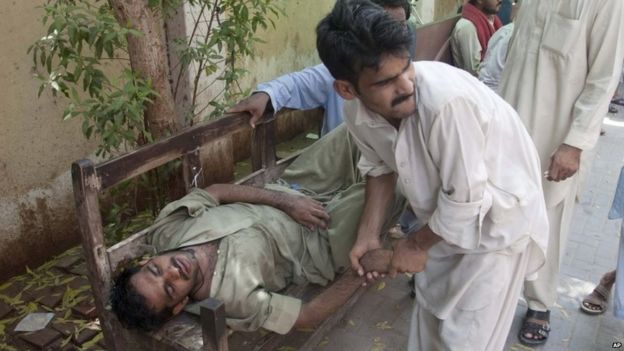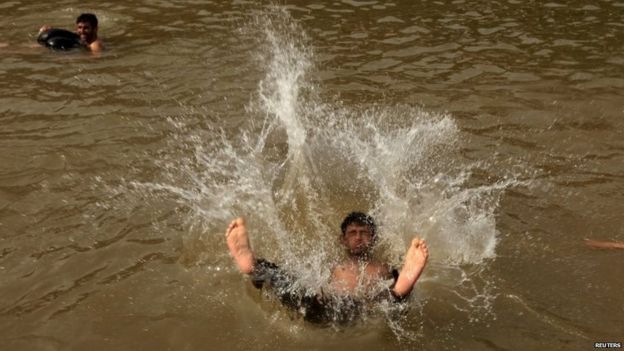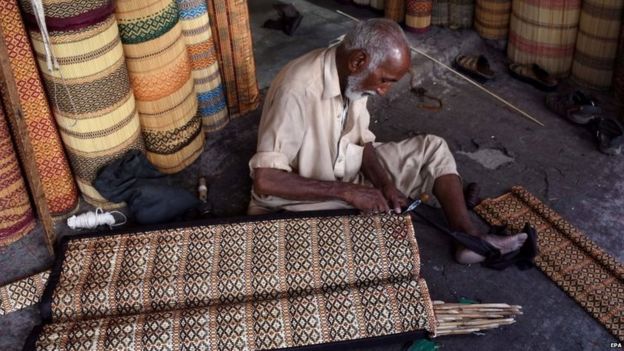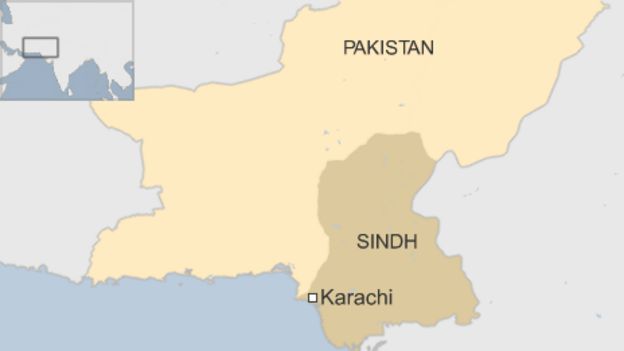Pakistan heatwave: Emergency measures as toll nears 700
Pakistan's prime minister has called for emergency measures as the death toll from a heatwave in southern Sindh province reached nearly 700.
The National Disaster Management Authority (NDMA) said it had received orders from Nawaz Sharif to take immediate action.The army was also being deployed to set up heat stroke centres and assist the NDMA, it added.
Temperatures have reached 45C (113F) in recent days in the city of Karachi.

Many of the victims are elderly people from low-income families.
Thousands more people are being treated, and some of them are in serious condition.
The demand for electricity for air conditioning has coincided with increased power needs over Ramadan, when Muslims fast during daylight hours.
Hot weather is not unusual during summer months in Pakistan, but prolonged power cuts seem to have made matters worse, the BBC's Shahzeb Jillani reports.
Sporadic angry protests have taken place in parts of the city, with some people blaming the government and Karachi's main power utility, K-Electric, for failing to avoid deaths, our correspondent adds.
The prime minister had announced that there would be no electricity cuts but outages have increased since the start of Ramadan, he reports.

Pakistani papers come down hard on the authorities
"The blame is squarely on the shoulders of the government for its lacklustre performance in providing water and electricity," The Nation says bluntly, with the Daily Times agreeing that the prime minister now needs to take "some bold decisions"."Our levels of preparedness are exposed as woefully inadequate," the Express Tribune declares, predicting that climate change will claim more lives in future.
The News points out that it is the poor who are the hardest hit: "The fact that we ignore poverty is one of the reasons we face the kind of crisis we are seeing now… the need to solve the power shortages we face has become critical."
The Urdu-language paper Ummat accuses the Karachi water board of trying to cover up its "inefficiency and lethargy" by blaming K-Electric. "The matter won't be resolved by trading allegations."


How the body copes with extreme heat
The body's normal core temperature is 37-38C.If it heats up to 39-40C, the brain tells the muscles to slow down and fatigue sets in. At 40-41C heat exhaustion is likely - and above 41C the body starts to shut down.
Chemical processes start to be affected, the cells inside the body deteriorate and there is a risk of multiple organ failure.
The body cannot even sweat at this point because blood flow to the skin stops, making it feel cold and clammy.
Heatstroke - which can occur at any temperature over 40C - requires professional medical help and if not treated immediately, chances of survival can be slim.

"In our area, there is no electricity [since the] morning. We have complained several times, but there is no response from K-Electric," he said.

The all-time highest temperature reached in Karachi is 47C (117F), recorded in 1979.
Last month, nearly 1,700 people died in a heatwave in neighbouring India.



0 Comments:
Post a Comment
Subscribe to Post Comments [Atom]
<< Home